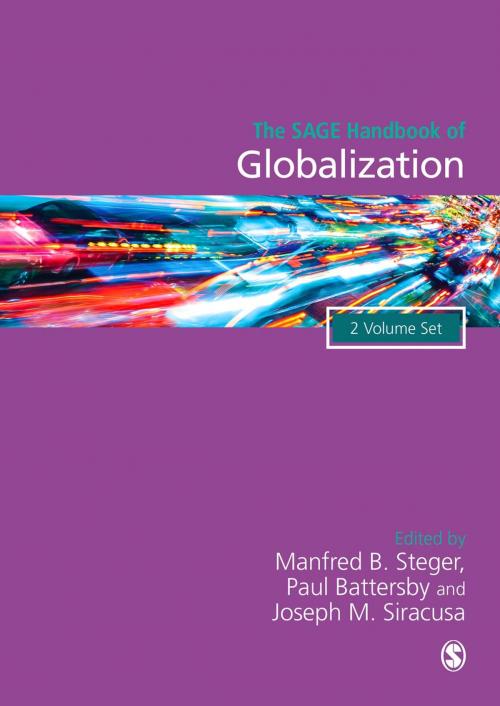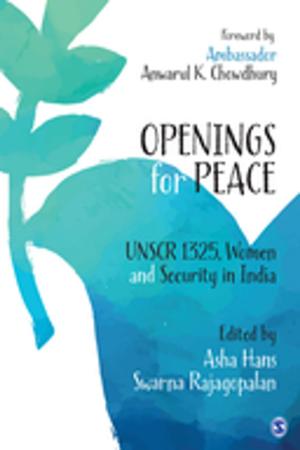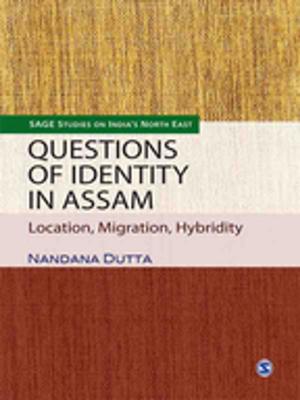| Author: | ISBN: | 9781473906013 | |
| Publisher: | SAGE Publications | Publication: | May 22, 2014 |
| Imprint: | SAGE Publications Ltd | Language: | English |
| Author: | |
| ISBN: | 9781473906013 |
| Publisher: | SAGE Publications |
| Publication: | May 22, 2014 |
| Imprint: | SAGE Publications Ltd |
| Language: | English |
Global studies is a fresh and dynamic discipline area that promises to reinvigorate undergraduate and postgraduate education in the social sciences and humanities. In the Australian context, the interdisciplinary pedagogy that defines global studies is gaining wider acceptance as a coherent and necessary approach to the study of global change. Through the Global Studies Consortium (GSC), this new discipline is forming around an impressive body of international scholars who define their expertise in global terms. The GSC paves the way for the expansion of global studies programs internationally and for the development of teaching and research collaboration on a global scale.
Mark Juergensmeyer and Helmut Anheier’s forthcoming Encyclopaedia of Global Studies with SAGE is evidence of this growing international collaboration, while the work of Professor Manfred Steger exemplifies the flourishing academic literature on globalization. RMIT University’s Global Cities Institute represents a substantial institutional investment in interdisciplinary research into the social and environmental implications of globalization in which it leads the way internationally. Given these developments, the time is right for a book series that draws together diverse scholarship in global studies.
This Handbook allows for extended treatment of critical issues that are of major interest to researchers and students in this emerging field. The topics covered speak to an interdisciplinary approach to the study of global issues that reaches well beyond the confines of international relations and political science to encompass sociology, anthropology, history, media and cultural studies, economics and governance, environmental sustainability, international law and criminal justice. Specially commissioned chapters explore diverse subjects from a global vantage point and all deliberately cohere around core “global” concerns of narrative, praxis, space and place. This integrated approach sets the Handbook apart from its competitors and distinguishes Global Studies as the most equipped academic discipline with which to address the scope and pace of global change in the 21st century.
Global studies is a fresh and dynamic discipline area that promises to reinvigorate undergraduate and postgraduate education in the social sciences and humanities. In the Australian context, the interdisciplinary pedagogy that defines global studies is gaining wider acceptance as a coherent and necessary approach to the study of global change. Through the Global Studies Consortium (GSC), this new discipline is forming around an impressive body of international scholars who define their expertise in global terms. The GSC paves the way for the expansion of global studies programs internationally and for the development of teaching and research collaboration on a global scale.
Mark Juergensmeyer and Helmut Anheier’s forthcoming Encyclopaedia of Global Studies with SAGE is evidence of this growing international collaboration, while the work of Professor Manfred Steger exemplifies the flourishing academic literature on globalization. RMIT University’s Global Cities Institute represents a substantial institutional investment in interdisciplinary research into the social and environmental implications of globalization in which it leads the way internationally. Given these developments, the time is right for a book series that draws together diverse scholarship in global studies.
This Handbook allows for extended treatment of critical issues that are of major interest to researchers and students in this emerging field. The topics covered speak to an interdisciplinary approach to the study of global issues that reaches well beyond the confines of international relations and political science to encompass sociology, anthropology, history, media and cultural studies, economics and governance, environmental sustainability, international law and criminal justice. Specially commissioned chapters explore diverse subjects from a global vantage point and all deliberately cohere around core “global” concerns of narrative, praxis, space and place. This integrated approach sets the Handbook apart from its competitors and distinguishes Global Studies as the most equipped academic discipline with which to address the scope and pace of global change in the 21st century.















